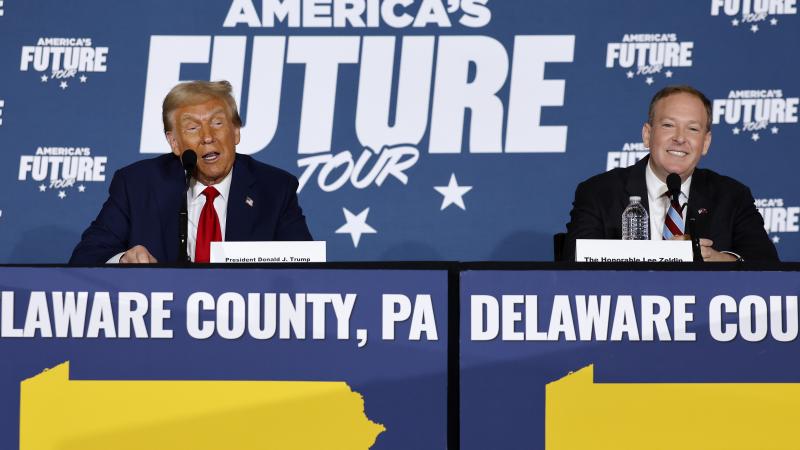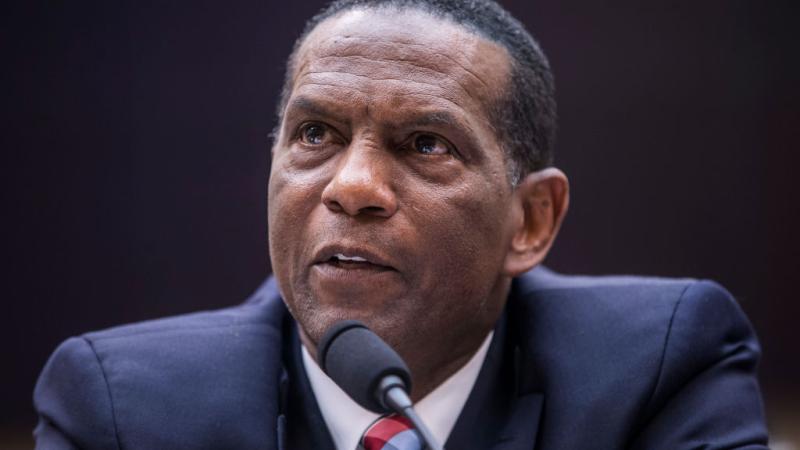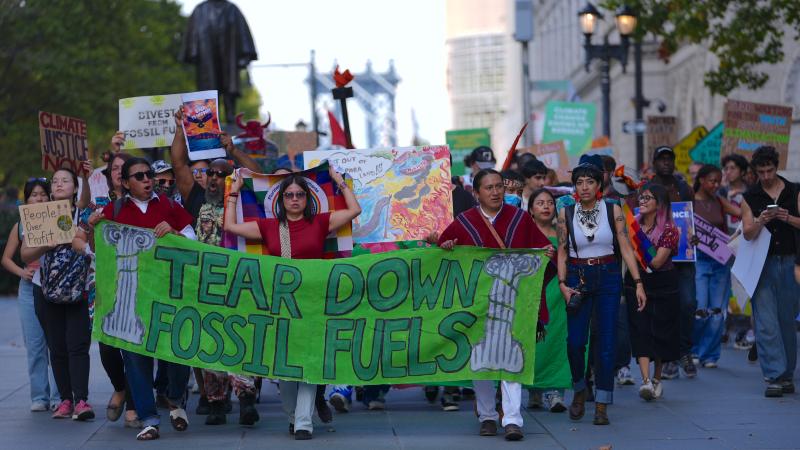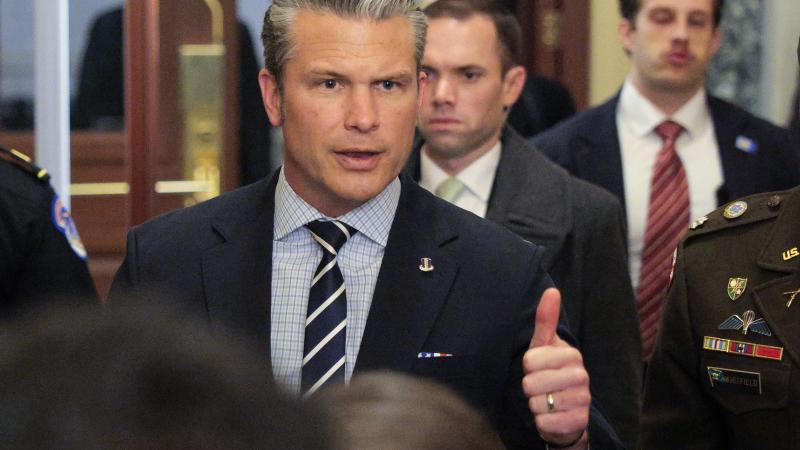House Dems invest in Tesla stock while trying to tilt EV market in favor of unionized competitors
Speaker Nancy Pelosi, Rep. Ro Khanna (D-Calif.), other top Dems own stock in nonunion Tesla even as they push targeted tax subsidies for union-made electric vehicles.
Several Democrats in Congress are invested in nonunion electric vehicle (EV) manufacturers, even as they push to erode their market share with targeted tax subsidies for their unionized competitors.
House Speaker Nancy Pelosi, Rep. Ro Khanna (D-Calif.), and other prominent Democratic lawmakers either own stock or have spouses who own stock in non-unionized Tesla, which produces EVs.
However, these same Democrats are simultaneously pushing legislation that would provide bonus tax credits for EVs built by union labor — and thereby make EVs built by Tesla and other nonunion companies thousands of dollars more costly for consumers.
Last year, Democrats included tax credits of up to $12,500 for vehicles made in the U.S. by union workers in President Biden's Build Back Better Act, a mammoth climate and social spending bill.
Specifically, the bill would grant up to $7,500 in tax credits for buyers of plug-in EVs made anywhere and an extra $500 if the vehicle's battery is made in the U.S. The controversial part is an additional $4,500 tax credit if the vehicle is built domestically with union labor.
Initially, all but the richest Americans qualified for the full tax credit — individuals making less than $400,000 a year, heads of households making less than $600,000 a year, or joint tax filers making less than $800,000 a year were eligible.
Republicans criticized the Democrats' proposal for giving thousands of dollars to the wealthy.
"That's why I introduced an amendment last year that would have reduced the maximum income threshold for the electric vehicle tax credit from $800,000 to $150,000 ($75,000 for single filers)," Rep. Drew Ferguson (R-Ga.) told Just the News. "This is a commonsense measure that would save taxpayers money while preventing liberal elites from benefiting from unnecessary tax-free rebates."
Ferguson wasn't the only lawmaker who had a problem with the tax credit's high cut-off for eligibility.
"I just don't understand why in the world we are subsidizing the wealthiest people in America to buy something they consider a trinket," said Rep. Mike Kelly (R-Pa.), cochair of the House Auto Caucus. "Don't ask hardworking American taxpayers to fund these electric dreams."
Democrats later lowered the income eligibility ceiling so that single filers with annual incomes of $250,000 or more or joint filers with incomes of $500,000 and up would be ineligible for the full credit. However, their goal is to incentivize as many Americans to buy EVs as possible.
Democrats argue the measures would reduce emissions, benefit the environment, and combat climate change by incentivizing Americans to buy EVs rather than cars that use gas. Transportation contributes more greenhouse gas emissions than any economic sector, according to the Environmental Protection Agency.
"This is an enormous existential risk; it's the greatest responsibility we have," said Rep. Don Beyer (D-Va.). "As long as the transportation sector is 29% [of the nation's greenhouse gas emissions], we need to do everything we can to make sure the industry is heading in the right direction."
Republican critics note that doesn't explain the additional tax breaks for those who buy union.
"Maybe union-built vehicles are somehow more green than other electric vehicles," Sen. John Cornyn (R., Texas) said on the Senate floor last year. "I doubt that. Or maybe it is a favor doled out to a favored interest group by our friends across the aisle. That seems like the more likely conclusion."
Unions have supported the Democratic Party for decades, contributing a steady supply of voters, money, and volunteers.
"It just strikes me as a blatant gift to a political friend," Sen. Roger Wicker (R-Miss.) said of the $4,500 tax credit. "I don't see any other way to look at it. It's an obvious payoff."
Other lawmakers argued the measure unfairly picks winners and losers.
"Every aspect of the Democrat agenda has stood in stark contrast with reality, and the EV tax credit proposal is no different," said Ferguson. "Democrats are trying to pick winners and losers, while Republicans want a level playing field."
Nonunion auto companies similarly blasted the union-made incentive as biased.
Toyota executives wrote the measure is "discriminating against American autoworkers based on their choice not to unionize." Tesla CEO Elon Musk called Biden a "puppet" of the United Auto Workers, which collaborated with the Democrats who wrote the tax credit.
Democrats supporting the $4,500 bonus tax credit argue foreign auto makers have union contracts in their home countries but gain an edge on costs by not having them at their U.S. factories.
"We strongly support leveling the playing field between nonunion and unionized workforces," Rep. Thomas Suozzi (D-N.Y.) wrote in a letter backing the provision that was signed by 106 other House Democrats and sent last October.
Ironically, Suozzi is one of the Democratic lawmakers who has significant stock in Tesla. In 2021, he bought and sold $75,000 of stock for a total of $150,000 transacted, according to financial disclosures filed from early 2021 through mid-January 2022 covering stock trades made last year.
Suozzi also sold $32,500 in NIO stock last year. NIO is a Chinese company that produces EVs. (The only other member of Congress to disclose NIO trades was Texas Republican Rep. Pete Sessions.)
Suozzi's office did not respond to a request for comment.
Market Watch recently went through an analysis by Capitol Trades of financial disclosures of members of Congress and found the three biggest traders of Tesla stock in Congress in 2021 were Democrats.
Beyond Suozzi, Reps. Ro Khanna (D-Calif.) and Marie Newman (D-Ill.) were heavily involved in trading Tesla stock. Khanna bought $129,500 and sold $16,000, while Newman bought $383,000 and sold $375,000.
Newman told Market Watch the transactions were disclosed properly and done by her husband as "part of an overall college and retirement savings program as well as to help pay for the family's extensive health care costs."
Rep. Alexandria Ocasio-Cortez (D-N.Y.) didn't appear to publicly trade Tesla stock, but she has a $59,000 Tesla vehicle, which she parked illegally outside a Whole Foods store in Washington, D.C. last year. Ocasio-Cortez previously attacked Tesla at a climate change town hall.
According to disclosures, Pelosi (or her husband, who runs a venture capital firm) also bought Tesla stock — specifically 25 call options at a stake price of $500 in December 2020. They were purchased for between $500,000 and $1 million and expire later this month.
Pelosi's purchase raised ethical questions. Biden had indicated he would try to increase purchases of EVs as part of his climate plan, and some watchdog groups warned of a conflict of interest.
"It's corrupt and unacceptable for members of Congress, particularly the speaker, to trade stocks in companies affected by their votes in Congress," said John Pudner, executive director of TakeBack.org, a conservative political reform organization.
Pelosi's office didn't respond to a request for comment.
Pelosi helped pass the Build Back Better Act, including the EV tax credits, through the Democrat-controlled House in November. However, the bill died in the Senate the following month when fellow Democrat Sen. Joe Manchin (W.Va.) said he couldn't vote for it.
Manchin made clear he opposed the $4,500 tax credit for union-made EVs.
"When I heard about this, what they were putting in the bill, I went right to the sponsor [Sen. Debbie Stabenow (D-Mich.)] and I said, 'This is wrong. This can't happen. It's not who we are as a country. It's not how we built this country, and the product should speak for itself,'" Manchin told Automotive News. "We shouldn't use everyone's tax dollars to pick winners and losers. If you're a capitalist economy that we are in society then you let the product speak for itself."
Despite little prospect of passing the Build Back Better Act in full through the Senate, House Democrats and left-wing groups are now pushing Biden to move ahead with the $555 billion in climate change investments that make up part of the bill — including the EV tax credits.
"The time for you to work with the Senate to finalize and pass the strongest and most comprehensive version of the Build Back Better Act that can get 50 Senate votes is right now," the lawmakers recently wrote to the president.
During his State of the Union address on Tuesday night, Biden tried to revive and rebrand Build Back Better without referring to the plan by name.
"They just can't help themselves," Manchin quipped after the speech when asked about Biden's attempt to resuscitate his signature legislation. "I don't know where that came from."
















